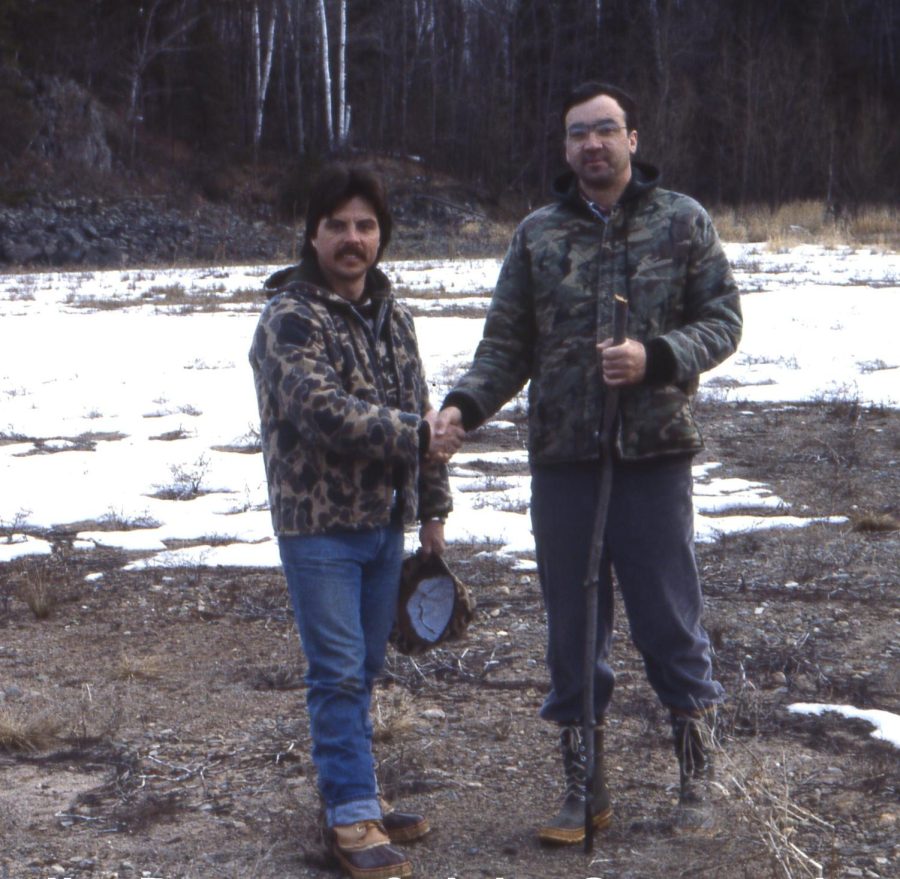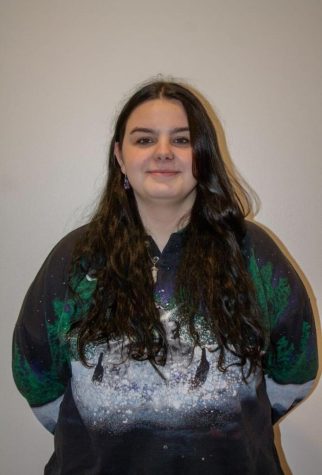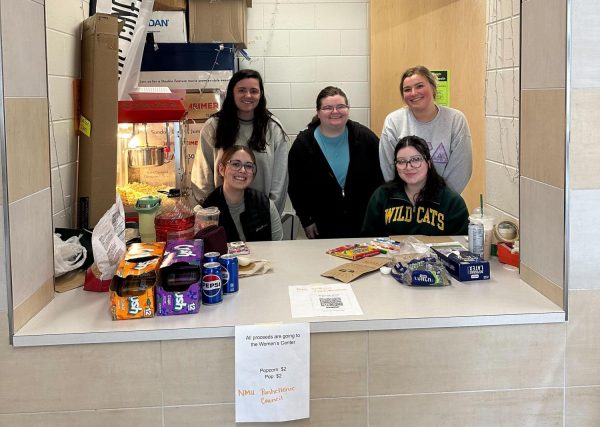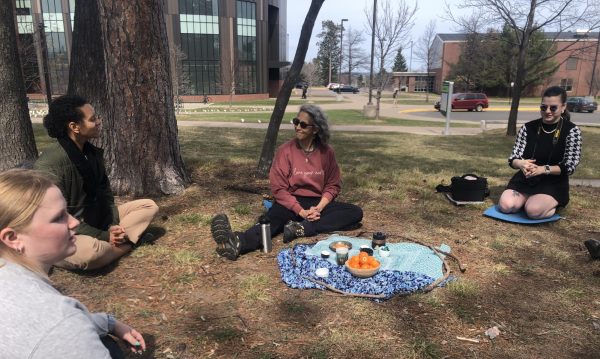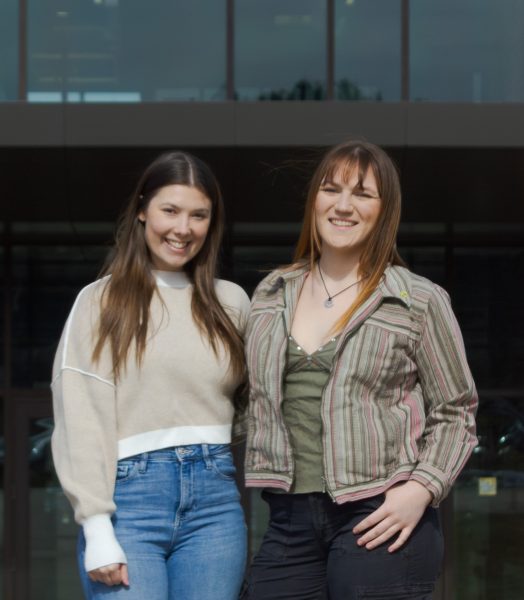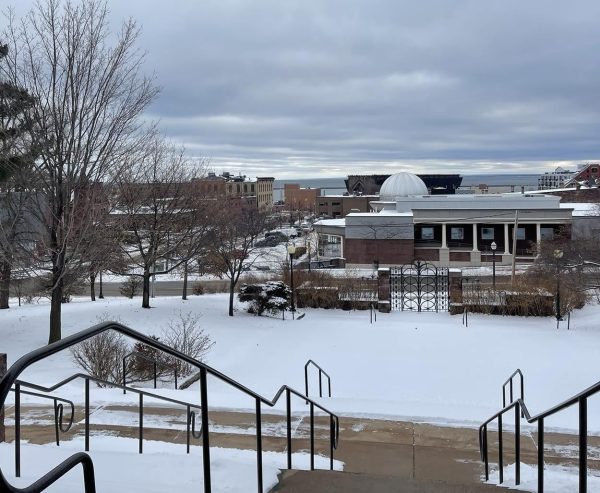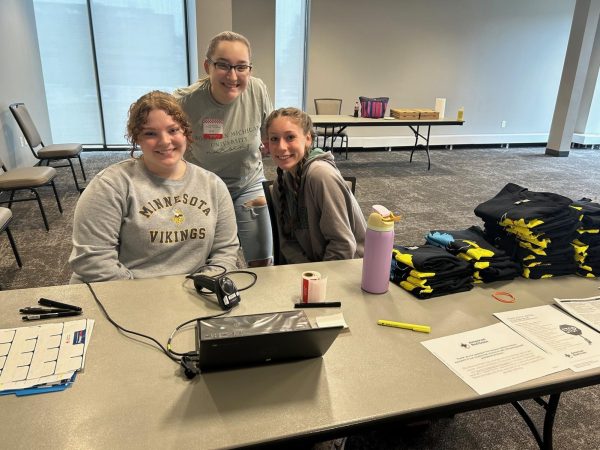Northern Now series hosts archeologist alumni Jim Paquette
Photo Courtesy of Jim Paquette
DIGGING DISCOVERY – NMU alumni Jim Paquette (left) and John Gorto (right) made the first discovery of Paleo-Indians who lived in the Great Lakes Region. Paquette will give a Northern Now webinar on his findings.
January 18, 2023
NMU Alumni Relations is hosting another installment of their “Northern Now” series today, Wednesday, Jan. 18, at 7 p.m. in the form of a webinar. The installment will feature NMU alumni and archeologist Jim Paquette.
Alumni Relations started the “Northern Now” series during the COVID-19 pandemic as a way to keep the community involved and informed about various topics and has continued to host them either monthly or every other month. Panels have included topics such as sports and cooking segments.
Kylie Bunting, Digital Engagement Architect of Alumni Relations, said the panels serve as a way to share topics that may be interesting to the NMU community and to highlight some of the school’s alumni.
“For us, it’s just a really great way to keep alumni and the NMU community as a whole engaged and connected, and to make sure that we’re offering things that might enrich the lives of our NMU community and enrich the lives of our alumni,” Bunting said.
Paquette will be speaking about the Gorto archaeological site on Deer Lake in Ishpeming, Michigan, which he helped discover.
Students and alumni can register for the zoom webinar here.
The Gorto site is one of the most important archaeological sites in the state of Michigan and within the western Great Lakes area, Paquette said.
“What makes it so important [is] that it was the very first discovery here in the Upper Peninsula of Michigan of direct evidence that the very first people who lived here in the Great Lakes region, [whom] we refer to as Paleo-Indians, were actually living right here in Marquette County,” Paquette said.
The artifacts found at the Gorto site were recovered in 1987 by Paquette and John Gorto, another graduate of NMU. Both Paquette and Gorto were not professional archaeologists when they made the discovery. However, the two alumni had set a goal to be the people who would find the very first evidence of Paleo-Indians living in the Upper Peninsula.
At the Deer Lake site, the duo found a large assemblage of Paleo-Indian and early archaic spear points, informing them that a ceremonial event had taken place there around 10,000 years ago. The discovery of this site led to the findings of various additional sites.
“We as amateur archaeologists proved it to the professional world who doubted we would ever do it and told us we would never do it,” Paquette said. “That just provided this incentive to go out there and find more, and we did.”
In 2007, all of the NMU archaeological collections, including the Gorto site collection, were transferred to the State Historic Preservation Office and the Office of State Archaeologist in Lansing where they have not been revisited. Paquette said he is taking an initiative to get the artifacts back where they belong at Northern Michigan University and that he plans to get the Native American Studies department involved with this effort.
“The problem is that we’re not able to hear the messages that come from those stones,” Paquette said. “There’s a lot of lessons there that we need to listen to … we need to study those materials and we need to go back and visit the people that left those things there.”





















